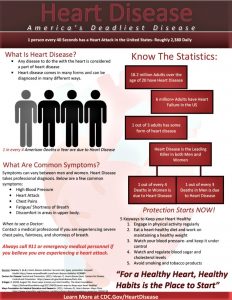Have you ever been to a place or done something that makes you stop what you are doing and ask yourself “Wait, have I been here or done this before”? If you answered yes to this question, then you probably experienced what science calls “déjà vu.” Déjà vu is a common feeling we experience when we think we have been somewhere or done something that we do not remember happening before. The term “déjà vu” literally means “already seen,” in French. This phenomenon is fairly common, with about 60-70% of people experiencing déjà vu at some point in their lives. It is most common between the ages of 15 and 25. Experts claim that déjà vu happens about once per year, but its frequency does decrease with age.1
This wasn’t the case for a 23-year-old white British man who presented persistent déjà vu in 2010. This British man, who wished his name to be kept anonymous, reported experiencing these symptoms since early 2007, shortly after starting college. He had a history of feeling anxious, particularly in relation to contamination, which led him to wash his hands very frequently and to shower two to three times per day, and his anxiety worsened around the time he began college. This condition is called germaphobia. The patient also told the doctors who looked at his case that he had a family history of obsessive-compulsive disorder (or OCD) on his paternal side, and possibly on his maternal side as well.2
Germaphobia, like that of this British man, happens when a person is afraid or anxious about germs such as bacteria, viruses, or parasites that could cause diseases. Sometimes, this anxiety leads to compulsive behaviors. Someone with germaphobia might frequently wash their hands, shower, or wipe surfaces clean.3
The causes for germaphobia include negative experiences in childhood, family history, environmental factors, and brain factors. For the case of family history, phobias can have a genetic link and that can increase one’s risk of developing a phobia. However, this does not mean that you might have the same phobia as your family member. Many people confuse germaphobia with OCD, although they do present some similarities in anxiety levels, they are not the same. The main difference between people with germaphobia is that they clean as an effort to reduce germs, while people with OCD clean to reduce their anxiety.4 It is possible, however, to have both conditions germaphobia and OCD at the same time.
Our young British man decided to take a break from attending college, and that is when he started experiencing déjà vu. His experiences would last for a couple of minutes, but they could also be prolonged. For example, while on holiday in a destination that he had previously visited, he reported feeling as though he had become trapped in a time loop.5 He returned to college and his déjà vu’s became more intense. Soon after returning to college, he took LSD once, and he reported that from then on, the feeling of déjà vu was continuous.
How might taking LSD result in déjà vu? LSD, or lysergic acid diethylamide, is one of the most potent psychedelic drugs out there. This potent drug binds to specific brain cell receptors and alters how the brain responds to serotonin, a neurotransmitter that regulates emotions, moods, and perceptions.6 By binding to these receptors, LSD modifies neural pathways, producing visual hallucinations and altering the perception of things such sound and time.7 Although there is not enough evidence to link LSD specifically to the condition of persistent and continuous déjà vu, we do know for a fact that certain drugs may increase the likelihood of experiencing déjà vu because of its effects on the brain.
Additionally, various studies have showed that LSD may increase anxiety levels for a person who already experiences LSD. This has only been proven to happen to people with existing anxiety, so it does not mean that LSD causes anxiety in every person. It usually depends on the type of “trip” the person taking LSD experiences. For example, a positive “trip” under the effects of LSD might not cause any long-term mood disturbances. In comparison to a negative “trip,” it might cause the person taking LSD to experience anxiety that even lasts after the LSD use.8

In 2008, the young British man decided to get checked out by a specialist in neurology, and he had some routine tests done, but none showed signs of epilepsy. Routine electroencephalogram (EEG) and magnetic resonance imaging were performed at a center with experience in the diagnosis of epilepsy, and both test came back normal.9 The diagnosis he was given was that he had a condition called “depersonalization,” and he was treated with medications.
It was important for him to get tested for the routine tests for the diagnosis of epilepsy because epilepsy has been linked to déjà vu. Although it is rare, déjà vu is sometimes a sign of a seizure, specifically an epileptic seizure. “About 60 percent of people with epilepsy have something called a focal seizure, which is in just one part of the brain. This can be in the same part of the brain where memory is stored: the temporal lobe,” says Dr. Spears.10
Temporal lobe seizures begin in the temporal lobes of the brain, which are in charge of processing emotions and are important for short-term memory. Temporal lobe seizures can also be called focal seizures with impaired awareness. Although some people are aware of what is happening, during more intense seizures, a person might look awake, but be unresponsive. A person experiencing a temporal lobe seizure can have a warning, which is an unusual sensation called aura. The aura is the first stage of a focal seizure before consciousness is impaired. An example of having an aura can be a sudden sense of unprovoked fear or joy, a sudden strange odor or taste, and a déjà vu experience can also be an example of an aura.11

In 2009, the young British man was assessed in a study for his performance on a recognition memory task, which had been previously used with patients who report similar persistent déjà vu experiences. The same version of this study was given in the past to a group of eleven male undergraduates. The control group showed a normal range for depression and stress measured by the DASS-21 diagnostic (Depression Anxiety and Stress Scales). They did, however, have results of mild anxiety. The participants were also asked if they had heard of déjà vu, the frequency of their déjà vu in the last month, and whether it affected their daily life. Eight participants of the control group had heard of déjà vu, one had not, and two of them did not answer. Of the eight who had heard of déjà vu, three had experienced it in the past month. Something interesting from these results is that one of the participants who reported having about twelve déjà vu experiences in the past month, scored high on all the subscales of the DASS-21 diagnostic.12 His anxiety score on the DASS-21 was “extremely severe,” yet he did not report that déjà vu affected his daily life.
The DASS-21 scale was developed in 1955 by Syd Lovibond and Peter Lovibond at the University of New South Wales. It was designed to measure “distress” and it examines three interrelated areas, which are depression, anxiety, and stress. Each of the three areas include seven items. For the area of depression, it measures levels of dysphoria, hopelessness, devaluation of life, self-deprecation, lack of interest/involvement, anhedonia, and inertia. For anxiety, it measures the levels of skeletal muscle effects, situational anxiety, autonomic arousal, and subjective experience of anxious affect. Finally, for stress, it evaluates difficulty relaxing, nervous arousal, being easily upset/agitated, being irritable/over-reactive, and impatience.13 It was created many years ago and to this day it still serves the same purpose. The Dass-21 is a valid measure, and its results are proven to be reliable in many cases.
One of the studies that demonstrated the effectiveness of DASS-21 was performed by the British Psychological Society in 2005. In this study, the DASS-21 was completed by 1,794 individuals that were part of the UK’S adult population. Scientists found that the DASS-21 was a valid measure scale that assessed levels of depression, anxiety, and stress accurately. The DASS-21 is best used in a clinical setting to assist in locating the source of the patient’s emotional disturbance more accurately.14
Aside from taking the DASS 21, the participants were given a memory task. In short, the procedure for the memory task is as follows: participants study thirty words for an immediate test. They are then read a list of sixty words (thirty studied words and thirty foils) and report whether each word is old or new.If participants classify the word as old, they are asked if they can justify how they encountered it before, find it familiar, or are just guessing.15

It has been previously demonstrated in past versions of this study that people with dementia who experience déjà vu, very often give many false positives when they identify new words as previously seen. Dementia is not a single disease but a term that covers a range of conditions like Alzheimer’s disease and Vascular dementia. These conditions have symptoms in common, such as memory loss and distortion, changes in mood, and disorientation. Dementia has been linked to a subtype of déjà vu, a disorder in the subjective experience of memory, as identified in the reports of remembering and familiarity, which we termed déjà vecu. Déjà vecu is a particularly strong sensation of ‘re-living’ the present moment.16
An expert on the déjà vu experience, Professor Chris Moulin narrates the case of a patient he encountered while he worked at a memory clinic at a hospital in Bath, England. Moulin received a letter from a general practitioner in 2000, referring a patient to him. The patient was an 80-yaer old who used to be an engineer and he was known as AKP. AKP was suffering from persistent and continuous déjà vu, or in other words, déjà vecu as a result of gradual brain-cell death caused by his already existing dementia. Unfortunately, AKP was not able to get a treatment for his condition because scientists have not yet found the cause for this condition to occur. However, Professor Moulin became interested in AKP’s case and they proceeded to research and study his case to further understand the relation between dementia and déjà vu.17
A condition like déjà vecu is the strange experience the 23-year-old patient complained about having. The results of the study for this patient showed that he did not give any false positives, contrary to what was expected, and he did not have a memory deficit either. Therefore, the possibility that his condition was due to dementia was ruled out. Although this case did not scientifically prove why the 23-year-old experienced this strange condition, it opened the door for a new possible explanation for his persistent déjà vu. His high levels of anxiety caused by déjà vu might in fact push this experience to be continuous and persistent. Although the cases of persistent and continuous déjà vu are medically rare, we can continue to study them and try to find a cause for this phenomenon. It will take time and effort, since with all the medical advances and technology we have not been able to find the cause for déjà vu in general, but hopefully in the future years we will.18
- “The Science Behind Déjà Vu,” video file, 4:30, YouTube, posted by Hashem Al-Ghaili, December 23, 2018, https://www.youtube.com/watch?v=njbgk-a-i9w. ↵
- Christine E Wells, et al., “Persistent psychogenic déjà vu: a case report,” Journal of Medical Case Reports 8, 414 (2014), 2. ↵
- Carly Vandergriendt, “All About Germaphobia,” September, 2018, Healthline, https://www.healthline.com/health/germaphobia. ↵
- Carly Vandergriendt, “All About Germaphobia,” September, 2018, Healthline, https://www.healthline.com/health/germaphobia. ↵
- Christine E Wells, et al., “Persistent psychogenic déjà vu: a case report,” Journal of Medical Case Reports 8, 414 (2014), 2. ↵
- Michael Kaliszewski, “What Does LSD do to Your Brain?,” October 2019, American Addiction Centers, https://americanaddictioncenters.org/lsd-abuse/what-does-lsd-do-to-your-brain. ↵
- Christine E Wells, et al., “Persistent psychogenic déjà vu: a case report,” Journal of Medical Case Reports 8, 414 (2014), 2. ↵
- The Recovery Village Editorial Team, “Lsd and Anxiety: How This Psychedelic Affects Anxiety,” January 2020, The Recovery Village (blog), https://www.therecoveryvillage.com/lsd-addiction/related-topics/lsd-and-anxiety/. ↵
- Christine E Wells, et al., “Persistent psychogenic déjà vu: a case report,” Journal of Medical Case Reports 8, 414 (2014), 2. ↵
- “Feel Like You’ve Been Here Before? It Might Be Déjà Vu,” July 2, 2019, Penn Medicine (blog), https://www.pennmedicine.org/updates/blogs/health-and-wellness/2019/july/deja-vu#:~:text=The%20eerie%20feeling%20that%20you,brain%20is%20telling%20you%20otherwise. ↵
- Mayo Clinic Staff, “Temporal lobe seizure,” February 24, 2021, Mayo Clinic (website), https://www.mayoclinic.org/diseases-conditions/temporal-lobe-seizure/symptoms-causes/syc-20378214. ↵
- Christine E Wells, et al., “Persistent psychogenic déjà vu: a case report,” Journal of Medical Case Reports 8, 414 (2014), 2. ↵
- TheraNest Team, “The Dass-21 Scale Explained,” September 3, 2020, TheraNest (blog), https://theranest.com/blog/the-dass-21-scale-explained/. ↵
- TheraNest Team, “The Dass-21 Scale Explained,” September 3, 2020, TheraNest (blog), https://theranest.com/blog/the-dass-21-scale-explained/. ↵
- Christine E Wells, et al., “Persistent psychogenic déjà vu: a case report,” Journal of Medical Case Reports 8, 414 (2014), 2. ↵
- Christine E Wells, et al., “Persistent psychogenic déjà vu: a case report,” Journal of Medical Case Reports 8, 414 (2014), 2. ↵
- Pat Long and Mosaic, Déjà vécu: When déjà vu becomes your reality,” June 1, 2017, CNN Health, https://www.cnn.com/2017/06/01/health/deja-vu-vecu-mosaic-partner/index.html. ↵
- Christine E Wells, et al., “Persistent psychogenic déjà vu: a case report,” Journal of Medical Case Reports 8, 414 (2014), 2. ↵




45 comments
Natalia Ramirez
I have always heard people talk about their Déjà vu experiences. However, I believe I have not yet experienced déjà vu. It makes me wonder why I haven’t yet. Is déjà vu related to your anxiety levels? This was a great and entertaining article. It did raise a lot of questions though! It is crazy how our brains work. I like the image you included where you compare how a healthy brain looks vs. a brain of a person who has Alzheimer’s. I am a Biology major, so all of this stuff does fascinate me.
Guadalupe Altamira
Interesting article and the information was a lot to take in but it was great. Deja vu is something many young people experience but I wasn’t expecting it to be a sign of epileptic seizures. I’ve experience my fair share of Deja vu and was always concerned about the anxiety level rising as it happened. I didn’t know that it was also connected to OCD, dementia, and epilepsy. Great article
Anissa Navarro
It is so interesting to read about De Ja Vu, a term we think we are familiar with. Reading your article I learned I am not as familiar with the term as I thought I was. It is interesting to read how it is estimated to happen once a year when I feel as if I have experienced it way more than that. Your article had caught my eye since I had just talked about experiencing de ja vu yesterday. We may not have much science backing up and explaining de ja vu, but I’m sure in the years to come more will develop.
Dominique Rodriguez
this article was very interesting and well written. while i was reading about deja vu what caught my eye was that when she said deja vu was a sign of epileptic seizure. i didnt think deja vu was something that it could slowly go away once you get older. every time i had deja vu i would always ask myself why that happens and now that i know how it happens its very interesting. what is also interesting is that deja vu also correlates to dementia, epilepsy OCD i didn’t even know that. this article was very informative. now i know how why deja vu happens.
Irene Urbina
Great article and very interesting topic! The introduction was really captivating. I was surprised to read that deja vu can be a sign of an epileptic seizure. It was also interesting to read that they usually decrease as you grow up. I was always curious to know why deja vu happened. I did not know that deja vecu existed and was like a stringer version of a regular deja vu and that they correlate with mental conditions such as anxiety, OCD, dementia, and epilepsy. Very informative article!
Kimberly Rivera
It is quite amazing to see a term that is used daily can connect to a disorder and be dangerous. Growing up Déjà vu was a term used to describe the sensation of remembering but when reading this article, it has given me a deeper understanding of Déjà vu. The insight of how LSD connects to Déjà vu and the understanding of mental illnesses really helped further the knowledge one has about this.
Claudia Sanchez
Hello Emilia, Thank you so much for this article! I experience deja vu a lot too like that young British student so I found this article incredibly informative in understanding my own life experiences. I love the way you end this article by leaving it open and understanding that this is not solved yet. This leaves it up to future case studies to continue this line of research. I also liked how this article did not demean the use of LSD, but instead casually integrated it into understanding the phenomenon.
Tomas Salazar
I did not know that this has any correlation to mental illnesses and can be more complex that the common eye can see. I obviously know the term “Déjà vu”, but I did not know that LSD could be connected to this term. The article perfectly gives great insight in what the true feeling of mental illnesses and also what it feels like to experience deja vu. My Grandmother had dementia when she became older and I firmly believe the informative articles like these can help us better understand mental illnesses.
Phylisha Liscano
Hello Emilia, very interesting article. I have always been interested in Deja vu since I do experience it a lot. Getting to know more about why or reasons as to why we get deja vu was very fascinating. When I have those moments i always freak out because in my opinion i think it’s very cool when I experience that.
Ariette Aragon
Your introduction really caught my attention, it is a good way to engage with the reader and make us interested. I don’t experience déjà vu’s very often, but when I do, it feels very strange and life in that moment doesn’t feel real. As I was reading your article I was thinking about how powerful and mysterious our mind is, and how there is still a lot we don’t know and maybe we shouldn’t know. I can’t imagine how hard it was for this young man mentioned in the article. Furthermore, I learned more about the effects of LSD and I think it is very interesting but scary.